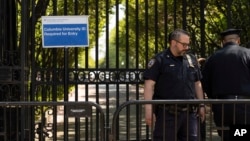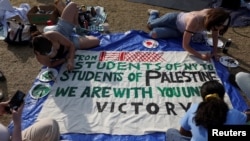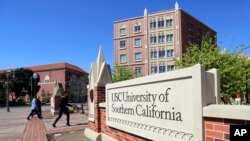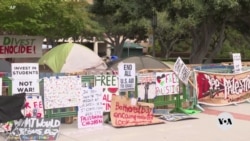Student Union
- By Tara Cheng
Everything You Need to Know about Dating an American and Having the 'Relationship Talk'

Having lived in the U.S. for two years now, I have been experienced many firsts, but none of them compare to the first I experienced last week - my first Valentine’s Day. Well, the first Valentine’s Day I actually got to celebrate, anyway.
It is hard to believe that my first big day romance-wise happened in a country that I am not from and with a guy who is not Chinese. But I think it just made the whole thing fun, cool and memorable.
My friends were so surprised that at 24 years old I had never had a real Valentine’s Day, but I am pretty sure I am not alone (please LEAVE COMMENTS below if this year was also your first V-Day!).
Last Valentine’s Day, my friend told me not to be sad that I didn’t have anyone to celebrate with - when the time is right, it will exceed all your expectations. And he was right.
So let’s go back to talking about the big V-Day date, and chatting about some points that I think are interesting to share.
Having "the talk"
Before V-Day this year, my boyfriend and I had been dating for a couple of months, and we were right at the point of “defining the relationship.” We had a big, formal talk over dinner one night to discuss where we were in this relationship and where it should be going, and this talk basically determined if we would celebrate Valentine’s Day together.
Why do Americans have these big relationship talks?
Two American girls talk about their experiences having "the talk"
Well, there are so many types of relationships in the U.S.: dating, casual dating, relationship, open relationship (this one does not make any sense to me), serious relationship, etc. It’s easy to see how people could be confused about which stage they are and which stage their partners are.
Why V-Day is scary
Valentine’s Day creates pressure to sort out all this confusion, and also gives people an excuse to define their relationship with certainty. Both people have to agree if they are already in or want to move into a relationship, which determines whether they do the V-Day thing together.
I was listening to On Air with Ryan Seacrest a few days ago, and a girl called in crying, saying how disappointed she felt that the guy she was dating did not take her out for Valentine’s Day. The hosts said that this was normal - the guy and girl did not have the exclusivity talk to figure out where they were in the relationship, and obviously they were not on the same page. So she got hurt.
A couple of my American friends told me they would rather just be alone on V-Day, even though they are dating someone. Why? Because they are just not sure if they are ready to take the dating to another level, and they do not want to create a misunderstanding with their partner.
My own V-Day
In my case, both my date and I are very cautious and drama-free. We used this V-Day to make it official that we are only dating each other, and we got the chance to have beautiful V-Day date night at the beach.
In China, and I believe in other Asian countries as well, there is only ONE type of relationship. You are either boyfriend and girlfriend, or pure friends, so there is no chance to be confused. In other words, when it comes to V-Day, people either have it for sure, or don’t even think of it. No discussion needed.
Is this the case in your country? Let me know in the comments!
Here's an example of how frustrating defining the relationship can be :)
Overall, Americans are very very cautious on the dating scene. It can sometimes take a long time for a romantic relationship to develop into an official boyfriend/girlfriend relationship. Sometimes that never happens at all. There are all kinds of different stages of relationships that foreigners need to be aware of, and some of them will always seem kind of ridiculous (like the open-relationship stuff, I am just never able to get it). But the key is that everything is talkable, and open communication is the key to navigating the relationship scene in a country that we are not originally from.
See all News Updates of the Day
Columbia University cancels main commencement after protests that roiled campus for weeks

Columbia University is canceling its large university-wide commencement ceremony amid ongoing pro-Palestinian protests but will hold smaller school-based ceremonies this week and next, the university announced Monday.
"Based on feedback from our students, we have decided to focus attention on our Class Days and school-level graduation ceremonies, where students are honored individually alongside their peers, and to forego the university-wide ceremony that is scheduled for May 15," Columbia officials said in a statement.
The protests stem from the conflict that started Oct. 7 when Hamas militants attacked southern Israel, killing about 1,200 people, mostly civilians, and taking roughly 250 hostages. Vowing to destroy Hamas, Israel launched an offensive in Gaza that has killed more than 34,500 Palestinians, about two-thirds of them women and children, according to the Health Ministry in the Hamas-ruled territory. Israeli strikes have devastated the enclave and displaced most of its inhabitants.
The University of Southern California earlier canceled its main graduation ceremony while allowing other commencement activities to continue.
- By VOA News
Where Are Pro-Palestinian Campus Protests Happening?

Colleges in the U.S. have been rocked by a wave of campus protests calling for an end to the war in Gaza, and for U.S. colleges to divest from Israel.
The Wall Street Journal’s Steven Russolillo rounds up some of the most important ones. (April 2024)
Pro-Palestinian protests in US could impact 2024 election
Despite the fact that many of their encampments at university campuses have been dismantled, pro-Palestinian demonstrators in the United States are standing their ground. If the protests continue, some analysts say they could have an impact on the 2024 presidential election. VOA’s Veronica Balderas Iglesias explains.
- By VOA News
Pro-Palestinian protest ends quietly at University of Southern California

Pro-Palestinian protesters at an encampment at the University of Southern California, one of the focal points of anti-Israel protests across U.S. college campuses, left the scene early Sunday after authorities warned them that they could be arrested.
Their departure came after university safety officers and Los Angeles police began clearing the center of campus, where police had arrested 93 people on April 24.
"If you are in the center of campus, please leave,” the university warned the protesters on the social media platform X, saying they could be arrested if they stayed.
Elsewhere, pro-Palestinian protests continued at several college graduation ceremonies on Saturday.
At the University of Virginia, 25 people were arrested for trespassing after police clashed with pro-Palestinian protesters who refused to remove tents from the campus.
At the University of Michigan, demonstrators chanted anti-war messages and waved flags during graduation ceremonies. More protests occurred at Indiana University, Ohio State University, Princeton University in New Jersey and Northeastern University in Massachusetts.
- By VOA News
Amid internship pressure, international students should focus on self-care

That’s the argument of Edhita Singhal, an international student from India studying at the University of Southern California.
Despite the fear of not finding a good internship, it’s important to relax and take care of yourself, she writes in her biweekly column for campus newspaper The Daily Trojan. (April 2024)










